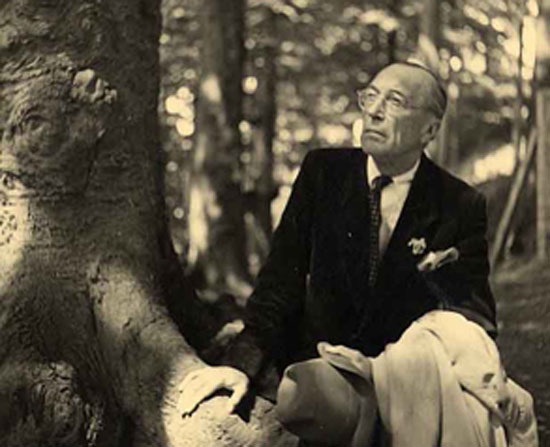Herman Teirlinck
-
Réalisé par Henri Storck • Écrit par Henri Storck
-
Belgique • 1953 • 55 minutes • 35 mm • Noir & Blanc
- Réalisation :
Henri Storck - Écriture :
Henri Storck - Image :
Raphaël Algoet - Montage :
Henri Storck - Musique originale :
Dimitri Balachoff
- Production (structure) :
CEP (Cinéma-Édition-Production) - Ayant droit :
CEP (Cinéma-Édition-Production)
- N° ISAN :
non renseigné
Résumé
"Ce film est le portrait d'un écrivain. Sa stature et son importance sont aussi évidentes que peu connues. Poète, romancier, auteur dramatique Herman Teirlinck qui a connu une célébrité immédiate et laissé une œuvre littéraire de premier plan a également fait un travail extrêmement novateur au studio expérimental du théâtre à Anvers et une carrière auprès du Palais, liée aux rois Albert I et Léopold III. Henri Storck s'est attaché à évoquer toutes les facettes de cette personnalité. Le film est construit en blocs séquentiels. D'abord, l'homme et son environnement, mis en place avec la promenade quotidienne qu'il faisait le long de la Senne, porté par son goût du terroir brabançon, des arbres et de la méditation. Vient ensuite la présentation de ses livres et de sa carrière. Puis, suit l'évocation de sa vie, de son enfance, de son rapport à la ville et à la campagne, de ce strabisme qui le force à voir la vie de deux côtés. Après l'homme privé, l'homme public et son remarquable travail de direction d'acteurs dans une école d'Anvers (séquence d'enseignement qui mériterait une grande audience car elle est historiquement d'avant-garde et pose tous les problèmes du comédien en termes très contemporains). Enfin son discours de la Libre Parole lors de la remise d'un prix pour les lettres néerlandophones et son texte de bilan de vie, véritable testament : "si j'aide quelqu'un, c'est pour me débarrasser du spectacle lamentable de son impuissance. Je ne peux verser des larmes que pour des actes d'amour, de courage ou d'humilité. "(Herman Teirlinck)."
(Fonds Henri Storck)
"The portrait of a writer. His stature and importance are as evident as they are unrecognised. Herman Teirlinck, poet, novelist, dramatic author who was instantly famous and who left a first-class body of literary work also did extremely innovative work in the experimental studio of the theatre in Antwerp. He had a career at the Palace, linked to the kings Albert I and Léopold III. Henri Storck endeavours to evoke all these facets of his personality. The film is constructed in a series of sequential blocks. Firstly there is the man and his environment, introduced through his daily walk along the banks of the Senne, carried by his love of the Brabant region, trees and meditation. Next comes the presentation of his books and career. Then there is the evocation of his life, his childhood, his relationship with the city and the countryside, of this strabismus that forced him to see life from two sides. After the private man there was his public life and his remarkable work directing actors in a school in Antwerp (the sequence of him teaching that deserves to be seen by a wide audience for it is historically avant-garde and poses all the problems of the actor in very modern terms). Finally, his speech in the Libre Parole as he received an award for Dutch literature and his text summing up his life, a veritable legacy: "If I help someone, it is to rid myself of the awful spectacle of his impotence. I can only shed tears for acts of love, courage or humility." (Herman Teirlinck).
(Fonds Henri Storck)
Comment avoir accès au film ?
-
Édition DVD
- Il n'existe pas d'édition DVD à notre connaissance
-
Accès VOD
- Il n'existe pas d'accès en VOD à notre connaissance
- Distribution
- Aide sur les moyens d'accéder à un film
